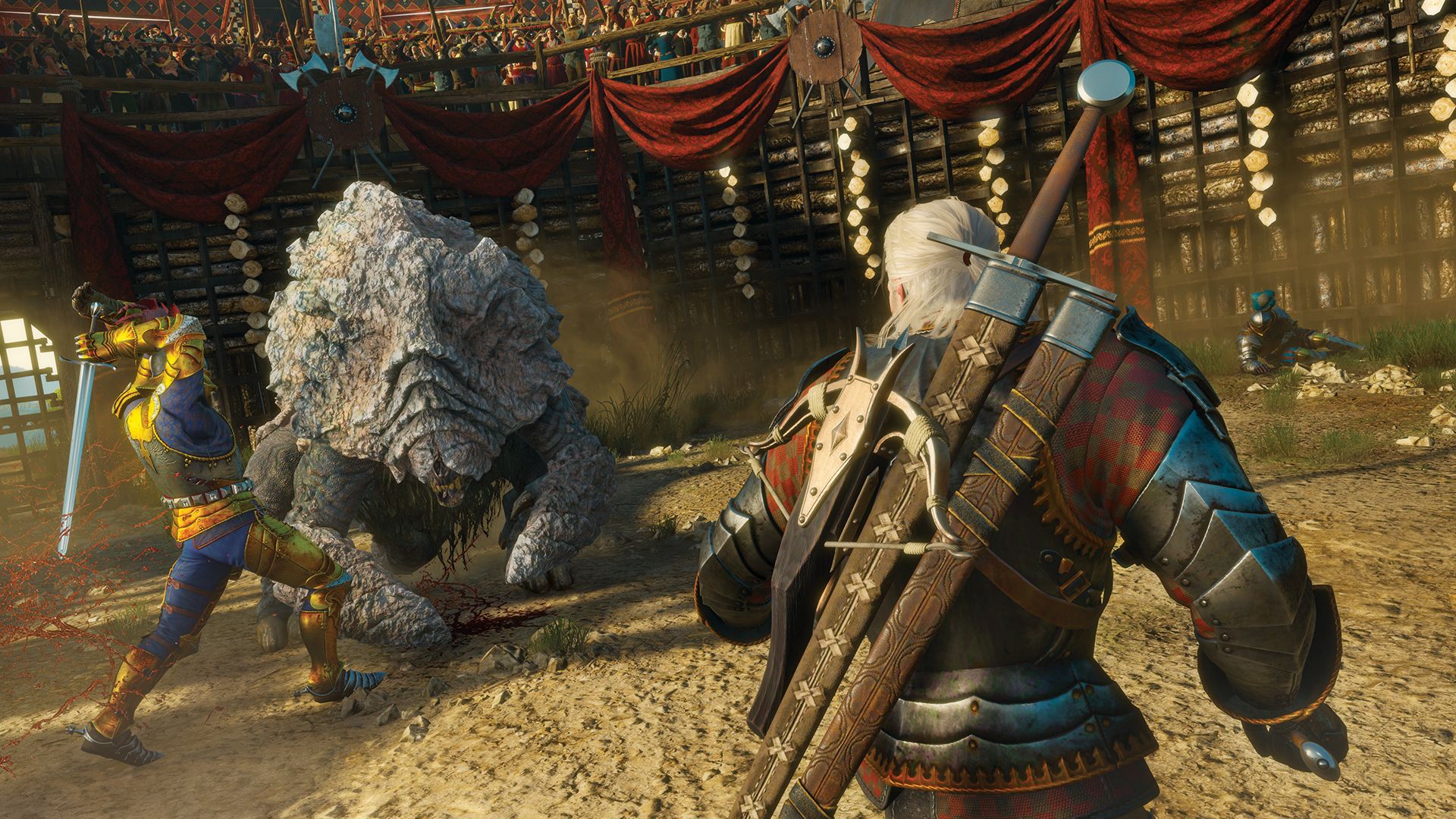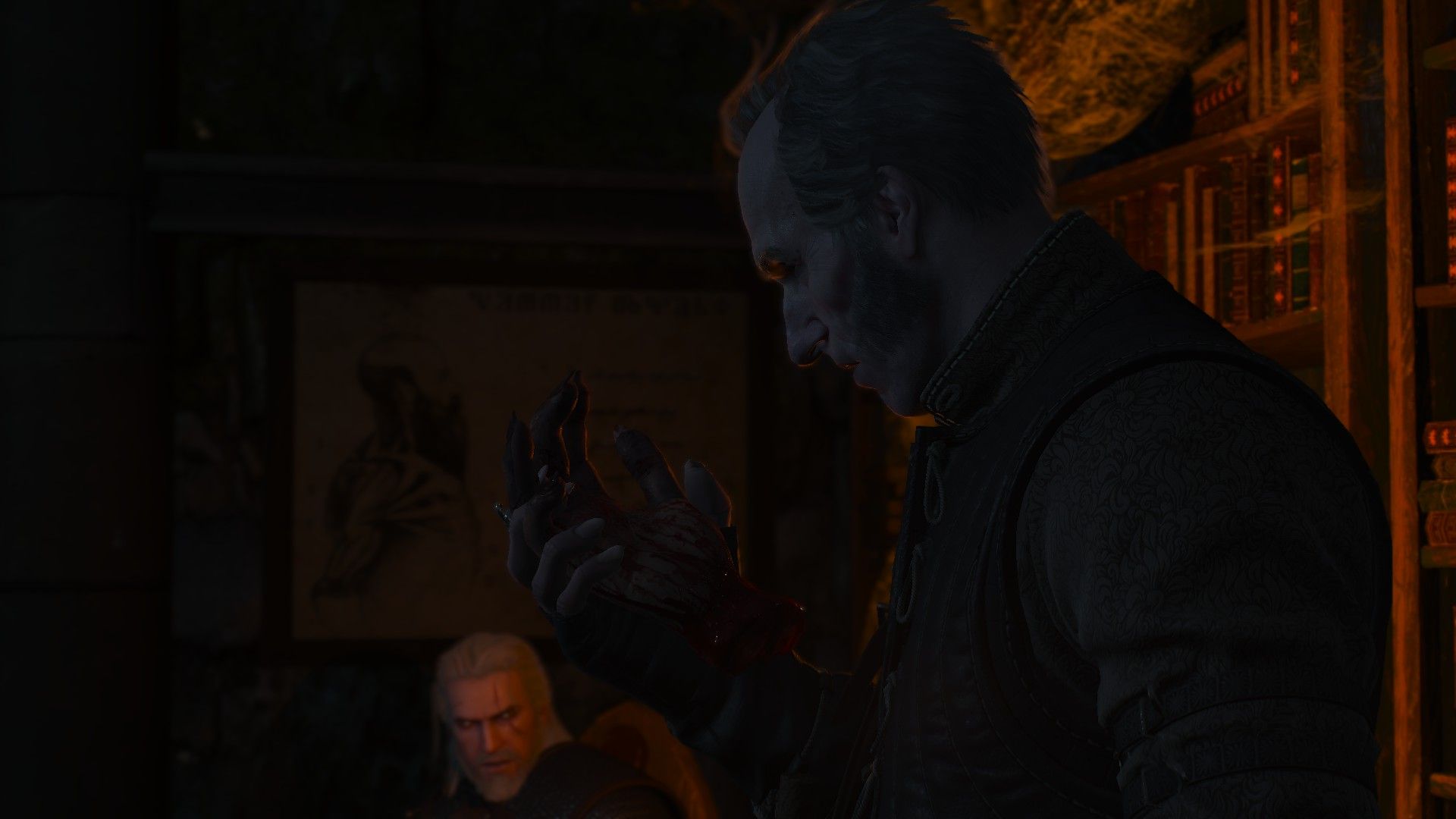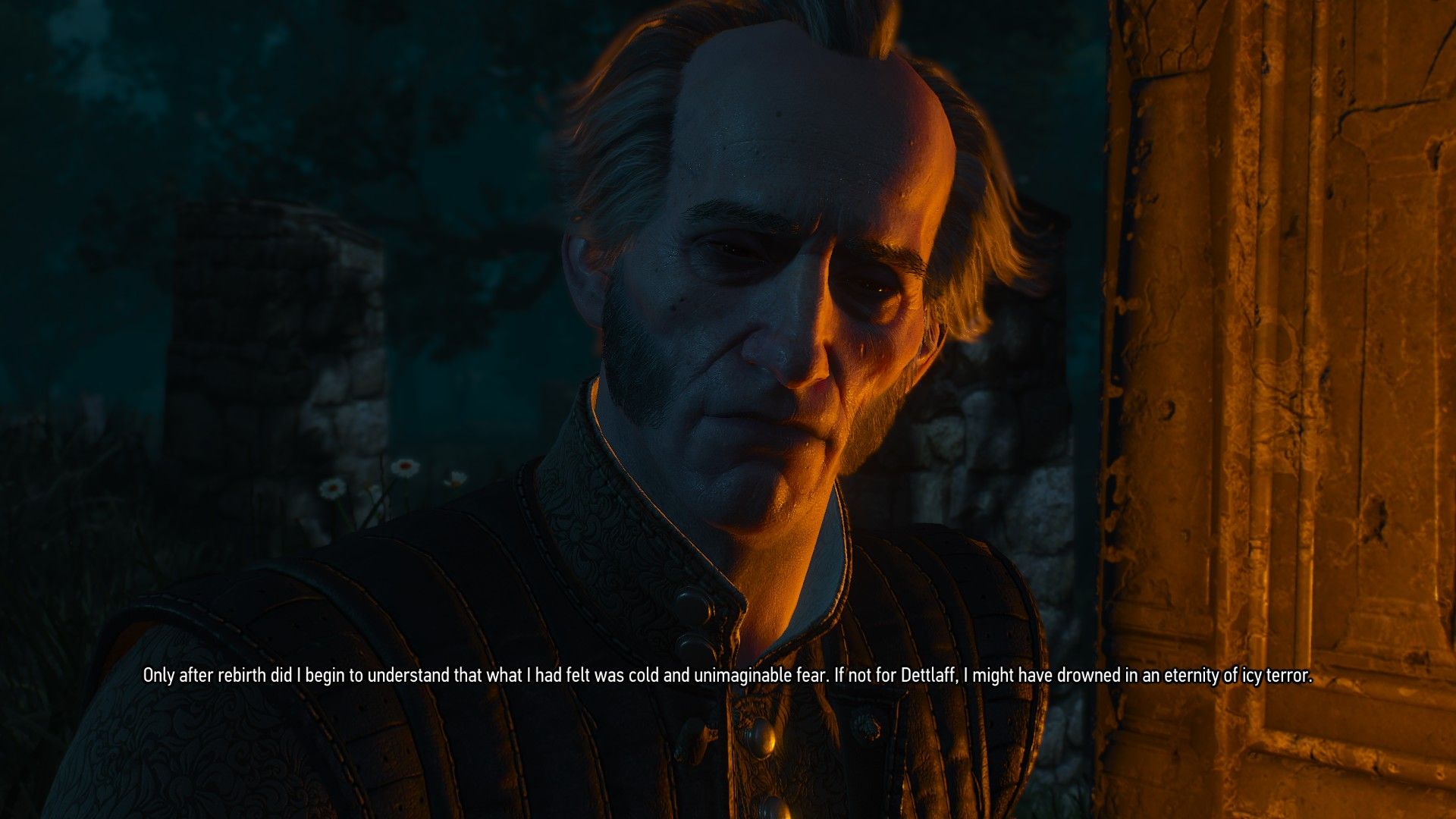The mysterious motivations of Blood and Wine's best character
A spoilery examination of Geralt's fascinating ally.

Warning, this article contains major spoilers for the main quest of The Witcher 3: Blood and Wine.
Let's talk about the best character in Blood and Wine, and perhaps the best character in the entire game. He's a vampire, a humanist and a recovering addict. He's a philosopher scientist who can rip your head off as you blink. We're talking, of course, about Regis. Or, to give him his full title, Emiel Regis Rohellec Terzieff-Godefroy. It's a suitably convoluted collection of names for an ancient high vampire with complicated motives.
You have to delve into Andrzej Sapkowski's books to understand how Regis ticks, to learn why he's at war with his nature. When he throws himself onto Dettlaff's outstretched claw near the beginning of Blood and Wine, he's recalling a sacrificial act he used to protect Geralt generations earlier. Back then he was destroyed by a demented one-eyed sorcerer called Vilgefortz—a name you'll hear dropped occasionally throughout the Witcher games. As we learn, Regis was immolated on the spot for his troubles, and has spent generations regenerating with Dettlaff's help.
Regeneration is an awful process—Regis mentions that he couldn't even walk for a year after his resurrection—and it's worse when you know that Regis has gone through it all before. As a much younger monster, Dettlaff used to go on blood binges and massacre humans in hedonistic fits of violence. This is a major faux pas in the vampire community, who prefer to use controlled feeding to avoid human mob uprisings and vampire hunts (this controlled feeding is explored in the chilling vampire temple later in the expansion). Regis was so badly mauled in one such hunt, that it took him 50 years to return.
It's a shame the game doesn't fill out his backstory a little more, because it explains a lot about what drives him, and shows the talent that's gone into realising the character. Mark Noble's excellent voice work brings out Regis' scholarly nature, and works hard to express nuance that animated CGI faces still can't produce. The writers have given him a deliberately wordy mode of speech. Regis' convoluted turns of phrase are an affectation as much as anything, a good way for a monster to appear respectable. His speech, clothes and even posture—proud, with thumbs hooked into his gourd-straps—suggest unassailable dignity.
It's something that Regis has worked hard at, and it makes him very likeable. But you might notice how keen he is to appear good. Ask him about what he's been doing, and he describes years spent as a doctor healing the sick in a small village, “enjoying my neighbours' respect”, living as “the exact opposite of the monstrous vampire the populous imagines”. He has a relentless desire to self-sacrifice. He suffers for Geralt, he endures a painful ceremony to find and help Dettlaff, and he has a terrible time meeting the ancient high vampire in its lair deep under Toussaint.
Regis' heroism seems almost suspicious, particularly when his monstrous side starts to show. The mood becomes awkward when the talk turns to issues of mortality in a booze-fueled graveyard heart-to-heart. “You humans are rather buggered in those terms. To strip you of life is, well, just plain easy. I've always pitied you in that regard.” More words come to mind later when Regis butchers an entire garrison during a castle assault. “I often find myself wondering why [humans] try so very hard. To die at twenty years, forty, even a hundred—what's the difference? They're all but the blink of an eye.”
Keep up to date with the most important stories and the best deals, as picked by the PC Gamer team.
Regis' cold vampiric aspect is hinted at frequently, to the extent that I was expecting betrayal at some point in the story. The alternative is sadder, if you think about it. Why would an ancient monster wander the earth being kind to what he clearly sees as a lesser species, and why would he so deliberately endure so much suffering as a result? An unquenchable desire for penance, perhaps, for the horrific blood binges of his youth. Maybe he's cursed with a moral compass that his race mostly lacks.
Perhaps it's something worse. Regis seems more tormented the more you get to know him. Toward the very end, Geralt draws out something new—a description of the vampiric condition as Regis sees it. In The Witcher, vampires come from another existence entirely, to which they can never return. Regis describes the feeling as a chronic, itching unease. This existential ache is worse for their isolation—a shared experience that explains Geralt and Regis' friendship. “Sounds... tiring”, Geralt says, and Regis agrees. In that moment he sounds like an immortal soul searching for an ending. It's the classic vampire bind. Even as Geralt's story comes to a close, Regis' story is cursed to go on, and on, and on.
Part of the UK team, Tom was with PC Gamer at the very beginning of the website's launch—first as a news writer, and then as online editor until his departure in 2020. His specialties are strategy games, action RPGs, hack ‘n slash games, digital card games… basically anything that he can fit on a hard drive. His final boss form is Deckard Cain.




